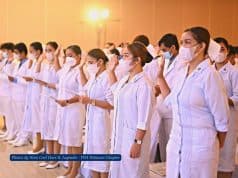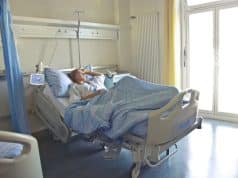If there is one thing that is constant in the nursing profession, it is the unbreakable chain that is tying nurses’ life between home and the hospital. When times are tough and the staff is not enough, you only get to spend 8 hours at home and squeeze all the chores in-between resting because you are in for the next shift. Relatively speaking, there are no Christmas vacations, month-long summer breaks, or even a three-day Holy Week respite. Sometimes, because of the shift’s heavy drudgeries, you’ll find yourself running late for your post-work appointments, dates, or even extra-curricular activities.
You are going to be asked why you are late and you just find yourself narrating the daily hospital tale and you can hear the unbreakable chain rustling at the background of your story. Basically, a great deal of a nurse’s life revolves around the workplace.
A popular opinion about one of the advantages of being a nurse is that you don’t get to bring your work at home. Once you’ve signed your name on your patients’ charts and endorsed them to your incoming colleague, the whole  responsibility is theirs for the taking.
responsibility is theirs for the taking.
This is quite not true as your life is between home and the hospital because you will find yourself thinking while making your coffee at the kitchen countertop if the elderly woman at the critical care unit makes it today or if the teenage girl who developed unilateral neglect after a car crash ever recovers while you feed your children and watch them actively packing their things for school.
In actuality, you bring your patients’ status at home and still set your caring reflex into motion by actively thinking for activities that you can do to turn their dreadful hospital stay into a pleasant experience.
Your shift dictates when your day out of the hospital will start. Some days it is all yours after midnight. Some days, you are welcoming it sleepily at 4 in the morning. So what do nurses do after the shift? Like any other normal beings, they take a shower and sleep. Cleanliness is more of an important matter at home. Some nurses can’t let their family members especially their children to hug them when they are from the hospital because they fear transmitting infection.
An average of 4-6 hours will be spent in bed. The sight of a bed is the next best thing for nurses after a comfortable car ride home in which they can just close their eyes and rest while somebody is driving for them. However, this is not the usual case for the majority of nurses. Transportation poses risks such as crimes, drunken co-passengers, and accidents especially at unlikely hours (e.g. midnight, early in the morning, late in the evening). But nurses in their white uniforms and comfortable scrubs brave all of these for the call of duty and family.
The majority of nurses reportedly sacrifice their sleep for their family’s needs. Those who are either married or are taking care of their elderly parents are more likely to cut-off hours of sleep to manage the household. Two to three hours will be spent preparing meals and doing grocery shopping. Another hour is ticked off for meals with the family. Having kids around the house will require more time and effort for nurses.
They need assistance with their home works and need someone who will listen attentively to their issues and stories about school. Nurses understand how important it is for children to be guided while they are still immature and developing. They set themselves a positive example for the younger members of the family. Sometimes, the nurse in the family is the one who will tuck them to bed telling them that monsters under the bed are silly jokes. Also, they are very keen when it comes to the early manifestations of sick family members.
With two-three hours left, nurses may seek relaxation from sports with friends and other recreational activities such as reading, writing, and doing crafts before they prepare themselves for another shift that is waiting for them to be filled and done. Then, the next eight to twelve hours will be spent protecting, transforming, and taking care of precious lives.







